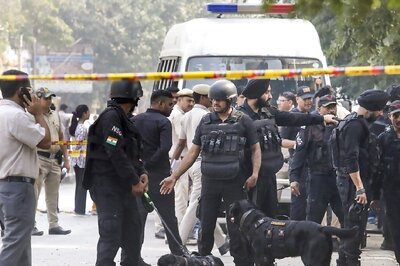
views
SYDNEY: Australian special forces allegedly killed 39 unarmed prisoners and civilians in Afghanistan, with senior commandos reportedly forcing junior soldiers to kill defenceless captives in order to “blood” them for combat, a four-year investigation found.
The report, some of which is redacted, can be accessed online at https://afghanistaninquiry.defence.gov.au/sites/default/files/2020-11/IGADF-Afghanistan-Inquiry-Public-Release-Version.pdf
Following are some key quotes from the report by the Inspector-General of the Australian Defence Force.
FINDINGS
“…the Inquiry has found that there is credible information of 23 incidents in which one or more non-combatants or persons hors-de-combat were unlawfully killed by or at the direction of members of the Special Operations Task Group in circumstances which, if accepted by a jury, would be the war crime of murder, and a further two incidents in which a non-combatant or person hors-de-combat was mistreated in circumstances which, if so accepted, would be the war crime of cruel treatment. Some of these incidents involved a single victim, and some multiple victims.”
The report found 39 individuals were killed and a further two cruelly treated by a total of 25 Australian Defence Force personnel. It recommended 36 matters involving 19 individuals be referred to the Australian Federal Police for criminal investigation.
“BLOODING”
“In [redacted] different Special Operations Task Group rotations, the Inquiry has found that there is credible information that junior soldiers were required by their patrol commanders to shoot a prisoner, in order to achieve the soldier’s first kill, in a practice that was known as ‘blooding’.
“This would happen after the target compound had been secured, and local nationals had been secured as ‘persons under control’. Typically, the patrol commander would take a person under control and the junior member, who would then be directed to kill the person under control.”
NON-COMBATANTS KILLED
“None of these are incidents of disputable decisions made under pressure in the heat of battle. The cases in which it has been found that there is credible information of a war crime are ones in which it was or should have been plain that the person killed was a non-combatant, or hors-de-combat.
“While a few of these are cases of Afghan local nationals encountered during an operation who were on no reasonable view participating in hostilities, the vast majority are cases where the persons were killed when hors-de-combat because they had been captured and were persons under control, and as such were protected under international law, breach of which was a crime.”
NOT LIGHTLY REACHED
“All that said, findings that there is ‘credible information’ of a war crime have not been lightly reached. Generally, the Inquiry has required eye-witness accounts, corroboration, persuasive circumstantial evidence, and/or strong similar fact evidence, for such a finding.”
IMMEDIATE COMPENSATION
“Where there is credible information that an identified or identifiable Afghan national has been unlawfully killed, the Inquiry has recommended that Australia should now compensate the family of that person, without awaiting for establishment of criminal liability. This will be an important step in rehabilitating Australia’s international reputation, in particular with Afghanistan, and it is simply the right thing to do.”
TO BE HEARD IN AUSTRALIAN COURTS
“Painful as it may be for those involved, by conducting this Inquiry, and following the evidence wherever it went, Australia has sought to maintain our moral integrity and authority as a nation by investigating breaches of laws which apply to us and our enemies alike. It also ensures that the only courts current or former Australian Defence Force members may face are those established by the laws of Australia.
Specific details of one incident from 2012 were redacted, but not this assessment:
“However, what is described in the Chapter is possibly the most disgraceful episode in Australia’s military history, and the commanders at troop, squadron and task group level bear moral command responsibility for what happened under their command, regardless of personal fault.”
(Compiled by John Mair; Editing by Lincoln Feast.)
Disclaimer: This post has been auto-published from an agency feed without any modifications to the text and has not been reviewed by an editor
Read all the Latest News, Breaking News and Coronavirus News here

















Comments
0 comment